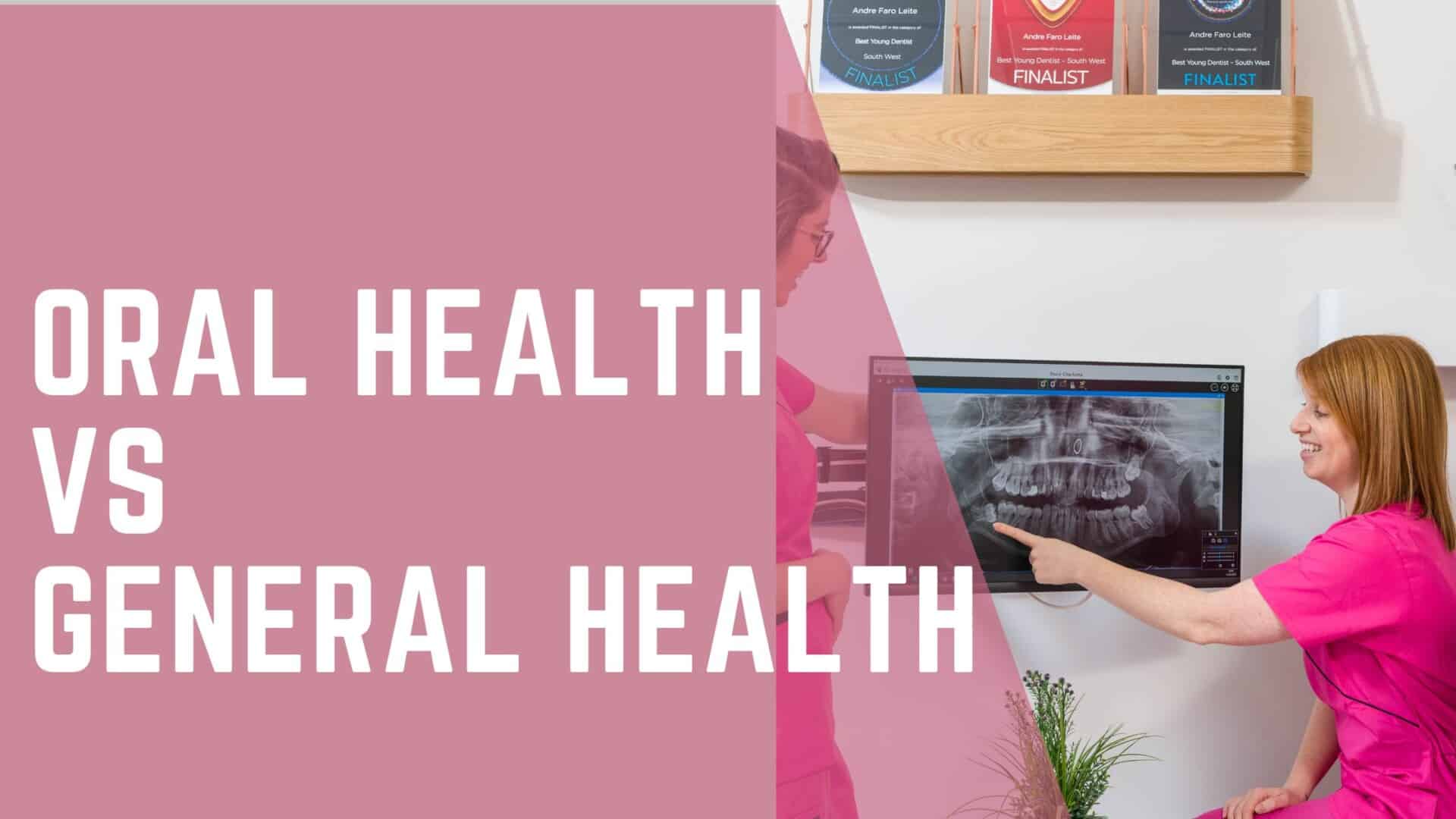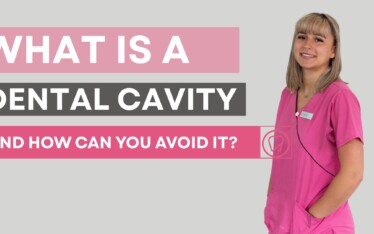Oral Health Vs General Health
Does my Oral health effect my general health?
It is increasingly common to hear that the links between oral health is vital for overall health and this is becoming increasingly recognised by the dental sector. Poor oral health can contribute to various systemic health issues, including cardiovascular disease, respiratory infections and even adverse pregnancy outcomes.
The mouth is full of bacteria, which are mostly harmless and expected to be there, but there are some harmful bacteria as well. If you have poor oral health, then it tips the balance of the bacteria causing an increase in bad oral bacteria which in turn increases oral health issues such as gum disease.
There are about 7.6 million people in the UK living with heart and circulatory disease, a quarter of all death in the UK are caused by heart and circulatory disease.
There is also evidence to show that mental health disorders such as depression and anxiety can develop when people suffer with heart conditions, and these mental health disorders are also linked to poor oral health due to a lack of motivation of self-care. As oral health issues such as cavities and tooth decay can lead to periodontal disease, it in turn leads to increased risk of heart disease. It is important to maintain good oral hygiene habits to reduce this risk.
Certain systemic health conditions such as diabetes can also impact oral health, leading to gum disease. This interconnected relationship emphasises the importance of maintaining good oral hygiene practices and regular dental check-ups to support not only oral health but overall wellbeing. Preventing deterioration of oral health, particularly in older age, can be crucial for survival due to the associations of oral health problems with cardiovascular disease and respiratory mortality. Oral health problems including tooth loss, periodontal disease and dry mouth accumulate throughout adult life and worsen with increasing age. Poor dental health is associated with high levels of inflammation, poor diet quality and conditions such as disability and diabetes. People with heart valve diseases are particularly at risk when gum disease is present. The bacteria that live in the mouth when gum disease is present can cross into the bloodstream, enter the heart and directly infect the vulnerable heart valves, which is particularly concerning in those with artificial heart valves.
Research suggests that there is a link between poor oral health and an increased risk of cardiovascular disease. The bacteria that infect the gums and causes gum disease can enter the bloodstream and travel to blood vessels everywhere within the body. When these bacteria reach the heart, they can attach themselves to any damaged area and cause inflammation. This can result in illnesses such as endocarditis, an infection of the inner lining of the heart. This can contribute to the development of the condition of plaque in the arteries of the heart. This process can lead to the narrowing of the arteries and increase the risk of heart disease and stroke. Additionally, the body’s immune response to bacteria can create vascular damage throughout the body, including the heart and brain, therefore chronic inflammation from oral infections play a role in the development of cardiovascular issues.
According to the World Health Organization, most oral diseases and conditions share modifiable risk factors with the leading noncommunicable diseases (heart disease, cancer, diabetes). When bad bacteria levels become too high, they lead to oral infections that cause gum disease and conditions including inflammation of the gums and deterioration of the bone that supports the teeth, this eventually leads to tooth loss. Gingivitis during the early stages causes signs and symptoms of swollen and bleeding gums. The increased bacterial load can travel through the bloodstream and latch onto the heart causing damage to the area and inflammation.
A study published in 2018 by Harvard medical school researched and analysed data from over one million people who experienced cardiovascular events, including heart attacks. There was a moderate correlation between tooth loss (a measure of poor oral health) and coronary heart disease.
There are shared concerns that should be avoided in order to reduce the risks to both dental and heart health. Changes to lifestyle habits will have a positive impact on overall wellbeing. Excessive smoking and alcohol consumption are commonly known to be detrimental to oral and overall health. Smoking can cause oral cancer, gum disease and promote other oral health issues. Alcohol builds up the sugar and acid levels in your mouth which leads to enamel erosion among other issues. An unhealthy diet is bad for both oral and overall health as it can encourage tooth decay and starches and sugars can feed the bacteria found in the plaque which harms the tooth enamel. Stress too can lead to oral health problems such as dry mouth, gum disease and cancer sources. It can also affect your appetite which leads to poor or unhealthy food consumption choices.
The connection between poor oral health and overall health may not be limited to cardiovascular disease, studies have linked periodontal disease and rheumatoid arthritis.
Preventing and treating mild gum disease, known as gingivitis, is straightforward with the help of a hygienist. Once gum disease is properly maintained the higher risk to the heart is less and can eventually return to normal. By being proactive about your oral health, you can protect yourself from developing a connection between oral health and heart disease and keep your smile healthy, clean and beautiful throughout life. Good oral health care habits normally keep the bacteria levels in our mouths stabilised and under control. Alternatively, bad oral hygiene will allow the build up of plaque and then bacteria which causes gum disease.
It is important to have regular dental cleanings as part of long-term preventative care. A good oral hygiene routine includes brushing twice daily with an electric toothbrush and using interdental aids twice a day, in addition to seeing a dentist and hygienist at least every 6 months. Everybody should get examined by their dentist, often you don’t know there is a problem until it is causing pain, which is often too late.
Symptoms and warning signs:
- Red, swollen gums
- Gums sore to touch
- Gums bleed when eating, brushing or flossing
- You see pus around the gums and teeth
- Gums look like they are pulling away from teeth
- Bad breath
- Bad taste in mouth
- Tooth feel loose or like they are moving
To conclude, a healthy mouth and good oral health routine can help to keep your body healthy. There is an undeniable link between oral health and heart disease, so it is important that proper attention is paid to keeping oral health at peak condition. Look to reduce potential risks wherever possible.



